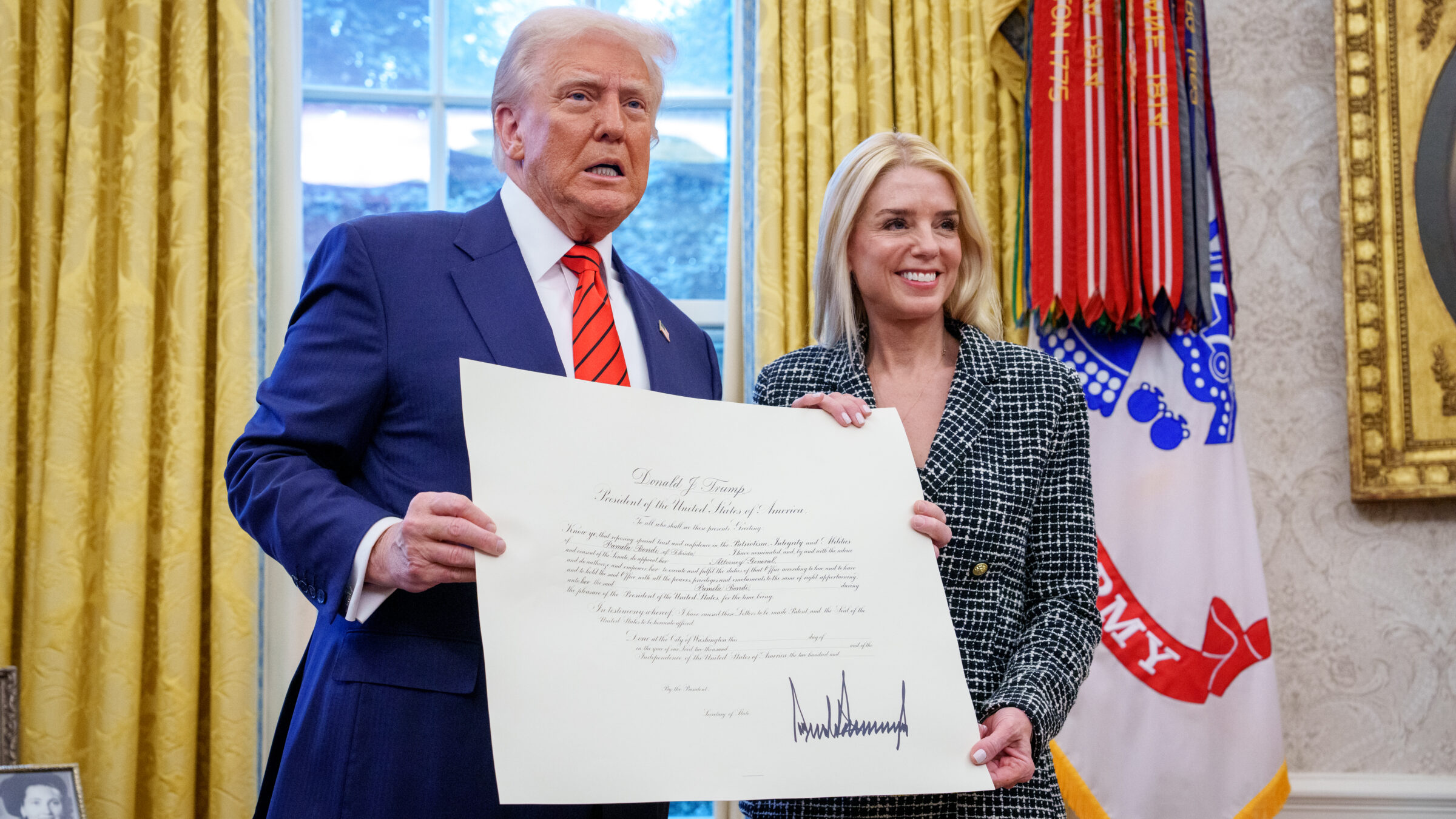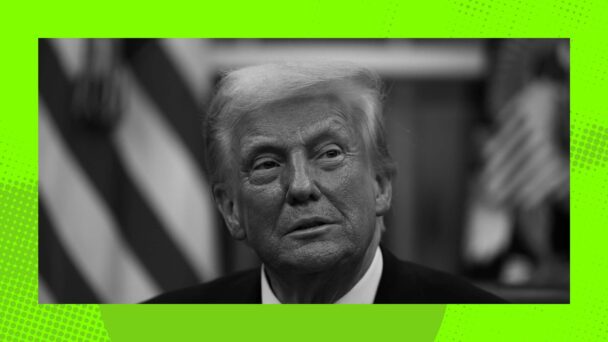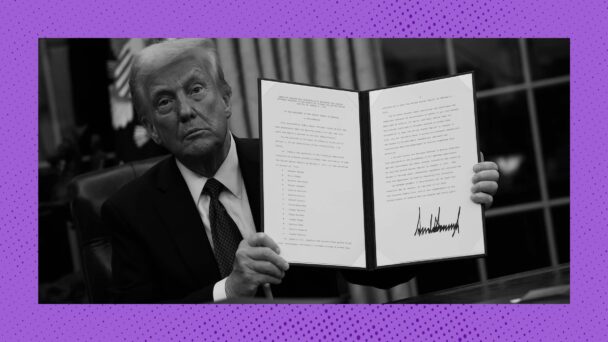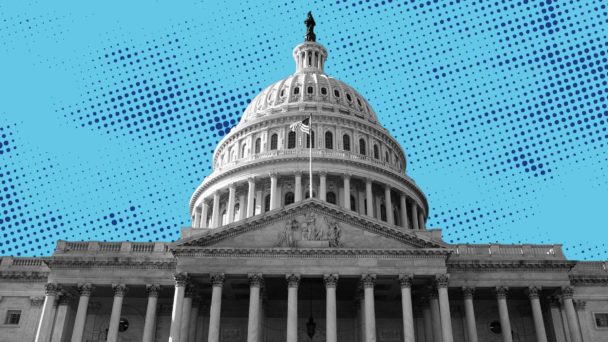Coverage of the Trump administration’s attacks on the legal profession tend to focus on how different law firms have reacted to the many executive orders targeting them. A more pernicious strategy has received less attention: attacks on public interest lawyers, many of whom represent the very individuals and communities that the federal government now prefers to suffer without legal recourse.
Having a lawyer doesn’t ensure that those with the fewest resources will find fairness in the justice system. But not having one—the obvious goal of the recent saber-rattling—consigns the neediest to cruel and unwanted suffering.
Last month, for example, the Trump White House published an executive order implying that immigration attorneys were somehow engaged in “unscrupulous behavior,” rife with “rampant fraud and meritless claims.” What constitutes such behavior? According to the executive order, “the immigration bar, and powerful Big Law pro bono practices, frequently coach clients to conceal their past or lie about their circumstances when asserting their asylum claims.” Supposedly, these lawyers spin a giant web of deceit to circumvent immigration law and bamboozle the judicial system.
Of course, the administration failed to include any real evidence beyond its insinuations to justify its claims. In the views of the president and his cadre, any due process guaranteed to immigrants constitutes an improper speed bump on the road to make America great again. Immigration lawyers vigorously represent their clients; they must therefore come to heel.
Any lawyer likely remembers from their required professional responsibility course that the federal government—to say nothing of the White House—has very little authority over the regulation of lawyers. State-level organizations and courts occupy nearly the entire field of policing attorneys for failing to comply with rules of professional conduct. Federal government attorneys can complain about other lawyers to judges or state bar associations, but they don’t have the power to file charges or claims. Like so many Trump administration rants, the gnashing of teeth is all bark and no bite.
Unfortunately, it’s a loud bark. Immigration attorneys may fear the possibility of judicial sanctions while representing clients whom the administration has demonized and terrorized. The order also implies an additional, lingering threat of professional sanctions for meritless claims. Federal attorneys now have marching orders to intimidate immigration lawyers, because representing immigrants qualifies as suspect all by itself.

(Photo by Andrew Harnik/Getty Images)
Legislators have also discovered that they can use their powers to pressure public interest attorneys supporting causes they dislike. In late March, the Republican-controlled House Committee on Education and Workforce sent requests for information to a handful of colleges and universities that (the committee implied) have failed to properly combat antisemitism under federal law. Such claims, of course, exist primarily as a Trojan horse to launder intimidation of colleges and universities—a classic strategy of authoritarian governments.
One such letter went to Northwestern University, specifically calling out the law school’s Community Justice and Civil Rights Clinic for its representation of pro-Palestinian activists and protesters. As the letter describes, because the clinic “is providing free legal representation in a civil suit to the organizers of an anti-Israel blockade of highway traffic to Chicago’s O’Hare International Airport,” the lawmakers have questions as to why “Northwestern, a university supported by billions in federal funds, would dedicate its resources to support this illegal, antisemitic conduct.
The letter paints the clinic’s representation of its clients as tainted by association; by quoting client statements that some readers might find objectionable (including one client who called for “many more October 7ths”), the House Committee attempts to insinuate that the clinic supports antisemitism and thus warrants investigation. The clinic’s work to combat police violence also drew scorn from the House Committee, demonstrating that any public interest attorney—not just those who represent immigrants or activists—may find themselves in the crosshairs of conservative officials.
I have previously advocated for the propriety of criticizing lawyers for their choices of clients. But government investigations with an obvious intent to intimidate constitute a very different, extremely dangerous threat to lawyers’ ability to represent clients. No one reading the House letter can seriously believe that the committee cares about clinic procedures; budgetary, funding, and donor records; and employment records for the clinic’s director, Professor Sheila Bedi. Just as the Trump White House wanted to ensure that immigrants struggle to find lawyers, House Republicans wanted to ensure that every clinician or public interest client would think twice about taking on a client that House Republicans dislike.
The invasive specificity of these requests, when coupled with their thin justifications, evokes the McCarthy era in which rabid anti-Communist legislators harnessed congressional power to blacklist and destroy anyone whom they chose to paint as “red.” Beyond its generic bullying, the “request” targeting Bedi and the Northwestern clinical program raises special concerns, given the academic freedom that clinical faculty rely upon and the ethical duties lawyers owe to their clients. Simply put, had Northwestern acceded to the government’s demands, no clinical faculty member, client, or student could feel secure in their rights.
In response, Bedi filed suit alongside one of her colleagues to prevent the release of the records that the House had improperly sought. (Disclosure: I advised her on the case). Just by filing the suit, she prevailed. At an emergency hearing on the request for a temporary restraining order, the committee disclosed that it had rescinded its demands just before the deadline for production, though leadership did not concede that the lawsuit had directly caused the rescission.
Like the law firms who have successfully challenged the White House’s executive orders targeting their firms, Bedi’s victory emphasizes how standing up for oneself can cause the government to retreat. Precious few members of the legal profession have pushed back on attempts to intimidate and silence lawyers. More of us should resist—not just because it is right, but also because it succeeds.





